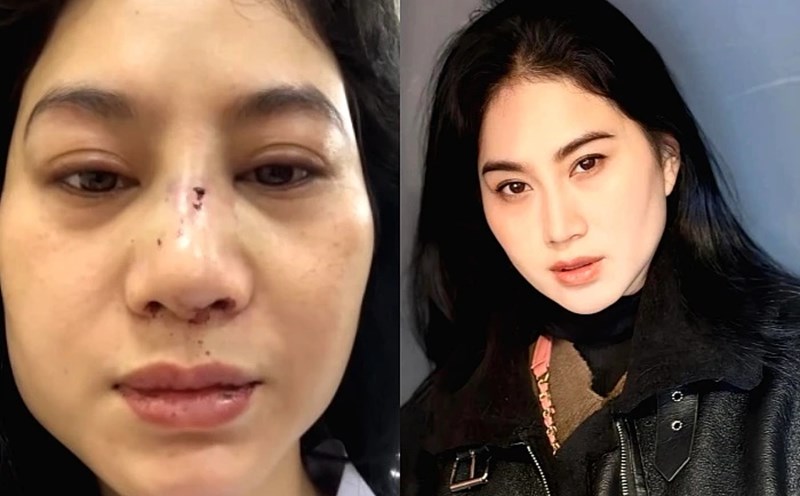Ms. X started sharing with a sentence that silenced the whole school: "I have three husbands... it sounds terrible but everyone is really bad". At the age of 28, she married for the first time a carpenter next to her job. At first, he pursued fiercely, showed love, pampering, and always caring, making her believe that he had chosen the right person.
But after only one year of marriage, the husband gradually fell into trouble, became attractive, had an affair, and neglected his family. He repeatedly used a needle to threaten and even stabbed his sister to extort money, despite his wife's pregnancy. During a panic run away, she fell and lost her first child. The tragedy after the tragedy made her unable to endure it any longer, forcing her to end her tearful marriage.
Thought that after her first shock, she would be more cautious, but her second marriage continued to be a pain. This time, the man who came to her looked handsome, had a stable job and a good income. However, when she got married, she was continuously scolded by her mother-in-law and her brother-in-law. The husband who once loved her gradually changed, became patriarchal, hot-tempered, repeatedly violent and even cursed her biological mother. After a while, she decided to divorce even though she had a son with him.
"Everyone I know knows me well, but I don't know why they change when they get married," she choked up as she told director Le Hoang. The simple statement but shows the helplessness and confusion of a woman who has continuously failed in marriage.
After her second marriage, Ms. X chose to be independent, focusing on opening a small pho restaurant, and doing business hard to stabilize her life. It seemed like the door to love had closed, but a man in the neighborhood persistently pursued her for a year. She was nearly 50 years old at that time. Despite the family's objections, she decided to move in with him, not to hold a wedding, hoping to have a peaceful destination this time.
However, the third love was more violent than both previous marriages. The man was addicted to alcohol, and every time he was drunk, he cursed and beat her. Once, he used a fan to hit her so hard that she was bleeding from the head. After six years of living in fear and enduring unreasonable blows, she had the courage to leave to protect herself.
Throughout that wounded journey, the only bright spot in Ms. X's life was her son with her second husband. I chose to stay with my mother, now I am an adult, living properly, and the greatest spiritual support to help her not fall.
Listening to the story, director Le Hoang frankly stated that the origin of Ms. X's misfortune lies not only in the bad men but also in the way she chooses a partner. He thought that she "had a good salary but the standard for choosing a partner was too low, she looked superficial, and her understanding of marriage was still sketchy and limited". According to him, with such a choice, "even if I marry 30 more people, I will still be unfortunate". Taking a husband, according to him, is not a matter of luck but a careful choice, it cannot be "chosen, like buying lottery tickets".
Ms. X's story in "The Third Person" is therefore not only a slice of sadness about domestic violence but also a warning for many women: kindness and endurance cannot replace understanding, courage and clear standards in marriage.











